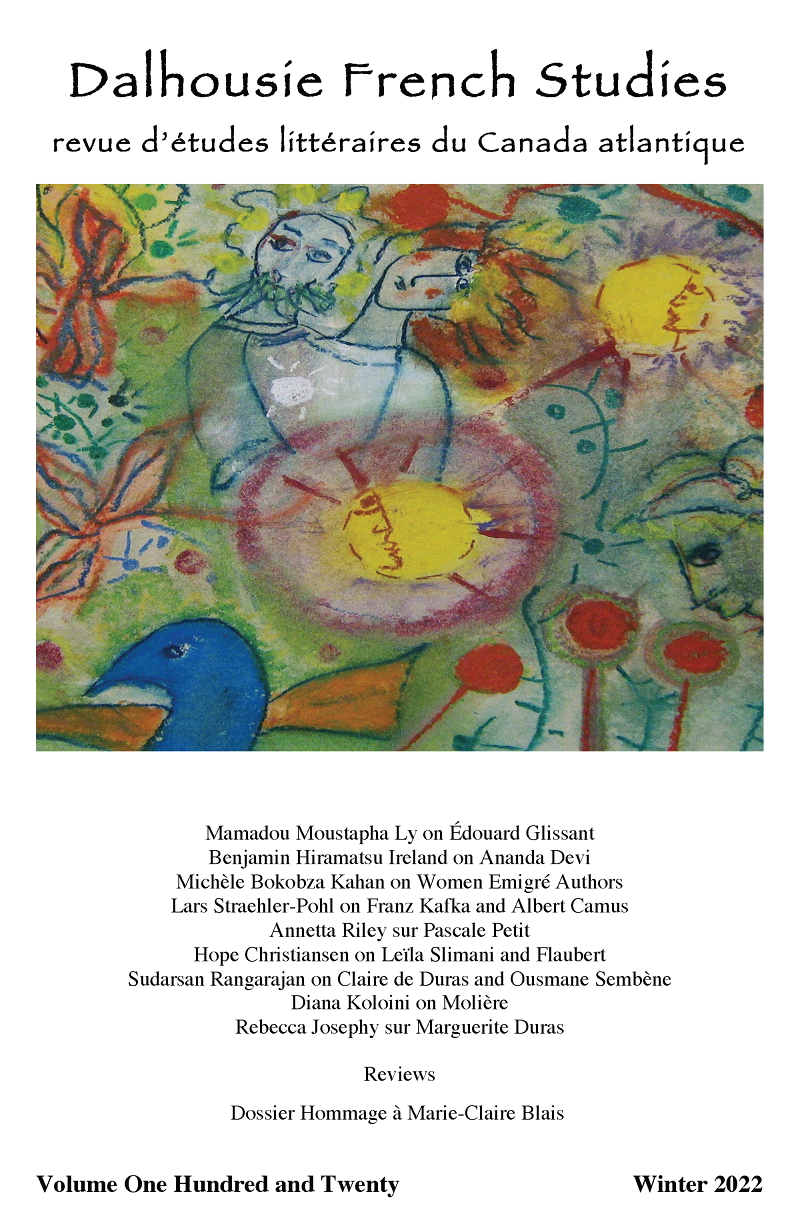The Kafkaesque and the Absurd – Fear and Hope in the Writings of Franz Kafka and Albert Camus.
Résumé
The world remains silent on the existential questions of human life. This existential silence is the defining moment both in the philosophy of Albert Camus and in the literary work of Franz Kafka. Silence manifests itself in the absurd as well as in the Kafkaesque, but those two perspectives differ in their implications with respect to hope. Kafka‘s main protagonists in his three big novels are marked by the fluctuation between hope and fear. The uncertainty of their fate contrasts with the relative stability of Camus‘s figures within his philosophy of the absurd. In contrast to prior research, the mythical figure of Sisyphus is here prominently considered. Sisyphus is without hope, whereas Josef K. (The Trial) is bound to it as to fear itself. The comparison of the two figures deviates from the classical analyses of Politzer (1960), Darzins (1960), Gillon (1961) and Bryant (1969), but also from newer approaches such as Viqez Jimenez (2017). Although the topic of hope has been analysed in some of these works, the article stresses the importance of hope in a terminological triplet. It examines hope, fear and silence in a philosophical perspective as a general approach to the Absurd and the Kafkaesque.
Le monde reste silencieux sur les questions existentielles de la vie humaine. Ce silence existentiel est le moment décisif tant dans la philosophie d‘Albert Camus que dans l‘oeuvre littéraire de Franz Kafka. Le silence se manifeste aussi bien dans l‘absurde que dans le kafkaïen, mais ces deux perspectives diffèrent dans leurs implications par rapport à l‘espoir. Les principaux protagonistes des trois grands romans de Kafka sont marqués par la fluctuation entre l‘espoir et la peur. L‘incertitude de leur sort contraste avec la
relative stabilité des personnages de Camus dans sa philosophie de l‘absurde. Contrairement aux recherches précédentes, la figure mythique de Sisyphe est ici mise en avant. Sisyphe est sans espoir, alors que Josef K. (Le Procès) y est lié comme à la peur elle-même. La comparaison des deux figures s‘écarte des analyses classiques de Politzer (1960), Darzins (1960), Gillon (1961) et Bryant (1969), mais aussi d‘approches plus récentes telles que Viqez Jimenez (2017). Bien que le thème de l‘espoir ait été analysé dans certains de ces ouvrages, l‘article précise l‘importance de l‘espoir dans un triplet terminologique. Il examine l‘espoir, la peur et le silence dans une perspective philosophique comme une approche générale de l‘absurde et du kafkaïen.


